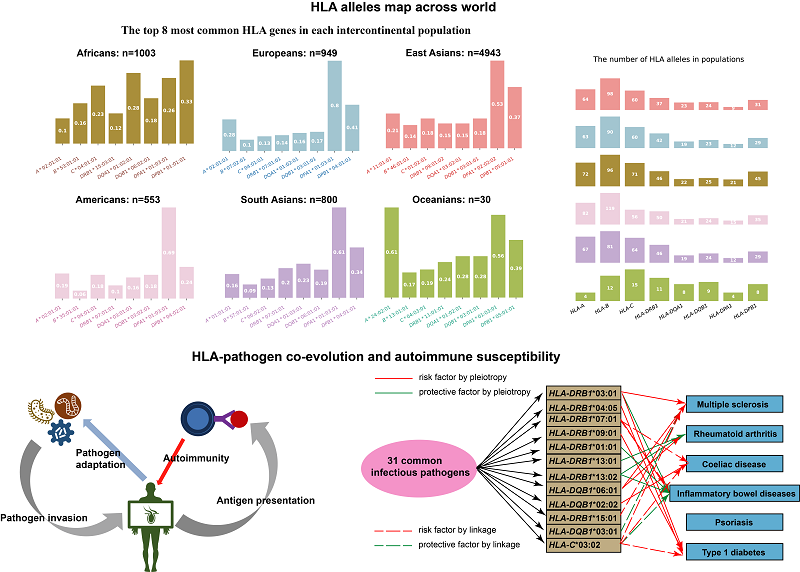
Newsroom
A new study led by Profs. XU Tao and HE Shunmin from the Institute of Biophysics of the Chinese Academy of Sciences has revealed how human leukocyte antigen (HLA) genes, central to the immune system, influence both pathogen resistance and susceptibility to autoimmune diseases.
The findings were published in Genomics, Proteomics & Bioinformatics.
Focusing on the Han Chinese population, the study offers new evidence for the co-evolution of humans and pathogens.
This study, centered on the "NyuWa" genome resource, utilized advanced HLA genotyping tools to perform high-resolution (up to 6-digit) genotyping of 31 HLA genes in 8,278 individuals worldwide. It achieved an accuracy of 94% to 97% at the amino acid sequence level.
The resulting data set, now publicly available at http://bigdata.ibp.ac.cn/HLAtyping, represents one of the most comprehensive resources on global HLA gene diversity, with a particular emphasis on Han Chinese.
Based on this resource, the researchers systematically explored the genetic correlations between pathogen-adapted HLA genes and autoimmune disease susceptibility in the Han Chinese population, offering an evolutionary medicine perspective on disease origins and progression.
By analyzing the genetic associations between pathogen-adapted HLA genes and those linked to autoimmune diseases, the study revealed that many HLA alleles involved in pathogen adaptation also increase the risk of autoimmune diseases.
These findings underscore a key concept in evolutionary medicine—the idea that traits evolved to defend against pathogens may inadvertently heighten the risk of immune system dysregulation in modern environments.
This study not only provides a novel approach for understanding the origins of disease and human evolution, but also offers crucial support for improving medical practices and addressing modern health challenges.

Overview of HLA Data Resources and Their Applications in HLA Gene Evolution (Image by XU Tao and HE Shunmin's group)
